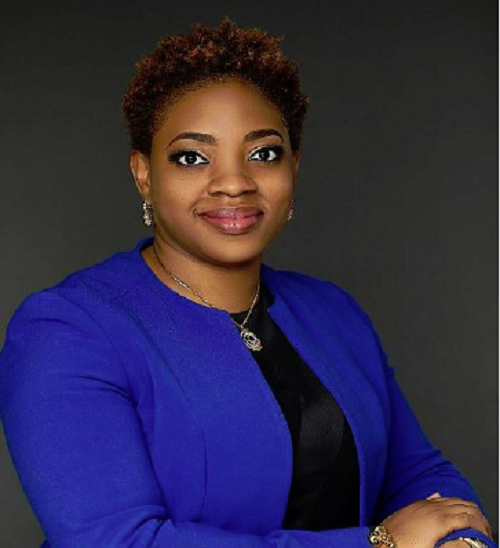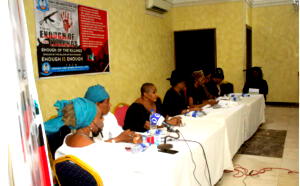Women in Management, Business & Public Service, WIMBIZ recently pulled the unprecedented feat of migrating the 2000+ delegates of its f...

Women in Management, Business & Public Service, WIMBIZ recently pulled the unprecedented feat of migrating the 2000+ delegates of its flagship yearly conference, on to cyberspace with success stories to share.
The Head of Coverage at Rand Merchant Bank Nigeria and the Chairperson of the WIMBIZ executive council, Ngover Ihyembe-Nwankwo shares the process with WO, while commenting on an Okonjo-Iweala WTO leadership. Excerpts:-
You had your annual conference on a fully digital platform this year for the first time. I had wondered how you were going to pull it off, given that you usually have an attendance of two, three thousand women over two days, which you then compacted into one. How did you do it?
This year has been so life changing on many fronts. It was pretty obvious that we couldn’t have a live conference even if we wanted to so the first decision was, shall we have it or should we not? We had no choice than to try to create a virtual format of it. For us it was how we combine all the elements into a virtual conference.
READ ALSO: #EndSARS: Panel recovers petitioner’s land documents seized by Police
More importantly, people would sit in front of their systems for24 hours- we didn’t think it was going to work so we had no choice than to think of condensing it so as to get maximum attention, but then, putting as much into it so people would not feel that they were missing out on the normal conference.
We do hope our next year’s 20th anniversary conference would be awesome. We had to recalibrate.
Were you nervous?
You can go through different emotions. At first I was afraid of the unknown but then as the weeks progressed and we had our own webinars I got a little more comfortable with having our own virtual conference so it became more of a question of, how do we pull it off, how do we get our speakers…? So there was a little bit of anxiety about getting everything together
And on the day itself you had people coming in from different parts of the world so you just wanted everything to go well. It was frightening, nerve wracking but at the end of the day the conference happened and we got really great feedback from the delegates who attended. I think even next year no matter what happens we will still have an element that is virtual so that we can allow people who are not in Nigeria and cannot travel to be part of it.
The Shift; recalibrate. Explain!
2020 has been one of the most destructive years, certainly in the last 100 years
and what we recognised was that there had been a fundamental change in the way that we live, work and interact with each other. Whether professionally or mentally, we have all had to make an adjustment.
We have had to shift physically as well as mentally. The shift has happened so you can either look at it from a negative perspective and wait until the sun comes out again or you can begin to look for whatever silver linings exist; so that was how we came up with the shift and the fact that one now needs to recalibrate.
Our hope for the conference is to have people fired, engaged, and more confident to navigate whatever shift their lives were going through.
In what ways was the digital conference different from the onsite conference? Can you outline the pros and cons?
In the physical conference you get to meet an amazing number of awesome women, you get to talk to them, and also for panelists and speakers you can get a live audience, you get to see immediately what the reaction is, what the reception is to what you are saying and what you are doing. Also for our sponsors, there is a physical way to engage with the participants. All the things that the physical conference brings are really around increased access and engagement.
For many of our delegates it’s often a time to take a day off work and have me-time so they have always looked forward to coming to the conference venue ending with a party.
We first of all recognize that the various components are as important as each other and so we tried to fit them in and I think, from what I heard from many of the delegates, they did find new people and find new ways to interact so we got that right. I still think there is room for physical engagement so that for me is an area where the virtual world doesn’t allow us to get close to each other even though we still found a way around it and even had a virtual party.
Typically you find either people are unavailable because they are travelling or try to factor in their journey time. For many speakers outside the country they have to accommodate booking their flights, making their schedules.
This time we didn’t have that. This time all our speakers were way on time. 20 minutes before session, all our speakers were waiting in the wings as it were. This year we had a lot of democratization with a lot of delegates from across the nation, and then we had delegates from interesting countries outside Nigeria.
We had people from Brunei, Nicaragua, the usual suspects – UK and USA, Canada. There were also some names I wouldn’t have expected- Congo DRC; so you can imagine that if it wasn’t virtual we wouldn’t have had so many people
When it’s virtual it’s still complex but not to the same extent.
What is your message to Nigerian women at this time?
It’s that we don’t have a choice, we have to embrace change and the quicker we embrace change the more we are able to thrive.
We should continue to work together. We are a formidable force when we are united and when we are focused on a goal so my message is, more women should continue to come together, we should bring more women into the fold and we should lift more women up.
We are formidable in every sphere of the economy in Nigeria and the world.
Dr Ngozi Okonjo-Iweala is set to be the Director General of the WTO. What is the significance of this, if any?
I think the first thing is to have a woman occupy a position of that magnitude. It’s affirming for female leadership and it’s proof that with intellect, ability and capacity, women can be anything they want to be and that across genders, anybody can be what they want to be once they set their minds to it. There is no discrimination.
Another thing for me is when I hear her speak and look at her campaign and tweets over the last few months; she has really hinged her campaign on fairness and inclusiveness.
She has even gone a little bit ahead to say that if she does get into the office, this is her first step, so she has a first step plan.
And she hasn’t been afraid to say that she’s going to tackle topics such as special and preferential treatment; she’s talked about multilateral trade agreements, sort of saying, let’s bring all the countries together , let’s have agreements that are fair to everybody, not just a few or not just some specific regions.
She has talked about creating a platform where everybody can compete equally so I certainly think that in Africa and in Nigeria in particular, her appointment will help us to drive home the various policies on export led growth initiatives.
For Africa she brings to the table an awareness that has not always been there about what it means to be African, what African countries are going through and the challenges that we are facing in international trade so I do think we will see a much fairer WTO going forward.
As a country specifically, it’s always good to see someone flying the Nigerian flag and for such a wonderful reason. We are solidly behind her, praying and hoping and we can’t wait for her appointment to be confirmed and ratified.
Especially now that the US presidential elections have been done and dusted…
Yes. Yes. Fingers crossed.
To all intents and purposes we are now stuck with the digital economy. How prepared are women led businesses for this shift, as it were?
More prepared than most. We have always grappled with multi tasking on various levels and so we’ve always looked for ways to improve productivity while allowing us to do as much as we do.
The one thing that the digital economy does for us is that it gives us tools to live more wholesome lives without necessarily having to be physically present.
It’s important though to note that not all women have the same access to technology but I do think that people are beginning to adapt and are accepting technology in various ways in their businesses; and with the pandemic that we have just been through, everybody is experiencing the shift.
When we were in the throes of the lockdown we had the Mile 12 market people trying to bring people together in clusters to sell and I saw that not only in Lagos, I saw it happening in Kaduna and other states as well where you could see that people were beginning to think differently about how they engage and how they do their business.
I think women businesses are definitely prepared. We do need to help everybody get the right tools and get the right access and get people to know that there is a shift.
Our lives as we knew it has been disrupted so we certainly need to think of new ways to do things and we need to create avenues for our businesses to thrive.
The post Women are well prepared for the digital revolution — Ihyembe Nwankwo, WIMBIZ exco Chairperson appeared first on Vanguard News.

No comments